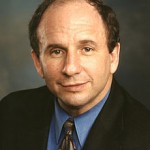 I’ve spent the past nine years helping middle and high school math teachers implement complex instruction as their primary pedagogy. As part of this work, supporting in-service teachers to implement complex instruction in their math classrooms, I ask them to listen to Harvard Law Professor, Lani Guinier speaking at the 2009 State of the Black Union (http://www.youtube.com/watch?v=b4diifDrgME). In response to a question about classism in Black America, Guinier argues that talent is equally distributed among all groups of people, and the ways in which talent is currently mined and measured in the U.S. privileges certain people – mainly those who are white and members of the upper class – and simultaneously prevents many poor people and people of color from accessing institutes of higher learning.
I’ve spent the past nine years helping middle and high school math teachers implement complex instruction as their primary pedagogy. As part of this work, supporting in-service teachers to implement complex instruction in their math classrooms, I ask them to listen to Harvard Law Professor, Lani Guinier speaking at the 2009 State of the Black Union (http://www.youtube.com/watch?v=b4diifDrgME). In response to a question about classism in Black America, Guinier argues that talent is equally distributed among all groups of people, and the ways in which talent is currently mined and measured in the U.S. privileges certain people – mainly those who are white and members of the upper class – and simultaneously prevents many poor people and people of color from accessing institutes of higher learning.
These ideas are not new to most of the teachers with whom I work. Many took jobs in urban public schools, because they live in these neighborhoods and they want to support the young people for whom Guinier is advocating. However, Guinier goes beyond the common claims about inequity. She claims, that yes, the overuse of standardized tests and only the use of standardized tests to identify talent in our country is inequitable, often bars access to universities and thereby impacts a person’s earning potential, job security, and access to affordable health care among other things. We know this argument well, and it’s often equal access to these very things that we are working so hard to ensure for our youth. But, then Guinier takes the argument further and explains that what our country needs in its efforts to solve the major problems of our time, is not a homogenous group of people who all had high scores on the SAT. “If we want to be successful, we don’t hire Steven and John who got the highest scores on the test. We hire Steven and Jane if Jane (who scored lower on the test than both Steven and John) got all of the problems right that Steven and John got wrong.” (Guiner cites Scott Page’s book, The Difference, in which Page argues that diversity trumps ability in problem solving.). In summary, if we want to reward Steven and John for their high test scores, then we hire Steven and John, but if we want a successful organization, then we hire Steven and Jane.
I have listened to Guinier many times, because her argument about the Black Agenda, problem solving and diversity resonates so strongly for me. As a result of an education system that identifies and rewards a very limited set of skills, talents, and strengths, too many our young people never come to know how they are smart and never get a chance to develop and use their talents for their individual and our collective benefit. We are all suffering because of this. Our education system is literally failing itself as it continues to purport very narrow definitions of success. If, for example, this country wants a strong economy, department of defense, health care and educational system, an educated citizenry and savvy consumers, then we have a responsibility to redefine merit and create schools and classrooms that identify and then support the development of a broad and diverse set of strengths. We owe this to our students and we owe this to ourselves. As Paul Wellstone, former U.S. Senator from Minnesota, stated, “Everyone does better when everyone does better.”
And so, as this new school year begins, I challenge each of us to consider how we define what it means to be smart in our schools and classrooms. What assumptions do we make about the “smart kids?” What messages are we sending our young people about who can be smart? What opportunities are we providing all of our students to see smartness in action and to get better at the many things that they are not good at YET? In our math classrooms, we might turn to the CCSM mathematical practices to develop our smartness repertoire, spend time brainstorming our “smart talk” in department meetings, or observe in classrooms outside of our content area and listen to our colleagues talk about what it means to be smart. Challenge yourself to go deep and beyond the talents of “Steven and John” with whom we might already be quite familiar and consider the many ways in which the Lucianos and K’Dishas make remarkable contributions to our classroom communities. We’ll all be better for it.



